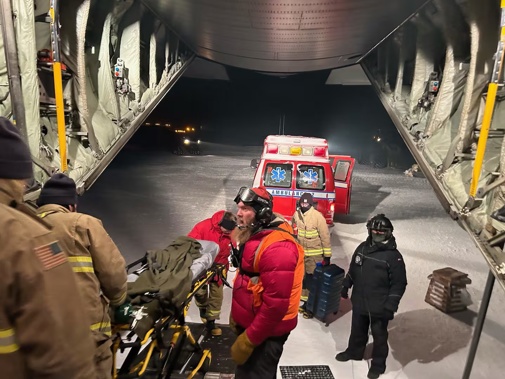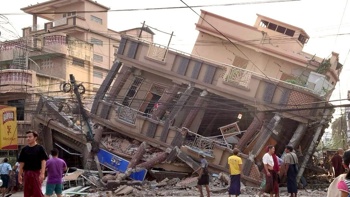
The Royal New Zealand Air Force (RNZAF) have pulled off a rare medical evacuation flight from Antarctica in a challenging night-time mission.
The RNZAF C-130H Hercules crew wore night-vision goggles as they flew into Phoenix Airfield this morning, where an American patient from McMurdo Station required medical treatment that could not be carried out in Antarctica.
The Hercules started the journey from RNZAF Base Auckland on Tuesday, flying to Christchurch before leaving at 2am on Thursday and touching down at 8.50am in Antarctica.
Air component commander Air Commodore Andy Scott said flights to Antarctica at this time of year are challenging due to the extreme environment, changeable weather conditions and because there is no daylight.
“Apart from flying in a combat environment, night-flying missions to Antarctica in the middle of winter present the most challenging and dangerous of conditions,” Scott said.
The RNZAF C-130H Hercules crew wore night-vision goggles as they landed on an ice runway at Phoenix Airfield this morning. Photo / McMurdo Station staff
Scott said the crew deployed early this morning with a narrow gap of acceptable weather.
“The weather had deteriorated again on arrival and so they have threaded the needle to get in when they did.”
The aircraft was “hot fuelled” on the ice after it landed, where the engines are kept running to protect them in extreme cold. The temperature in Antarctica was -33C at the time, with a wind chill bringing temperatures down to -40C.
Scott said at each stage of the journey the crew had to make “go, no go” decisions on whether to proceed.

The patient is in a stable condition with a non-life threatening condition. Photo / McMurdo Station staff
“Our highly trained crew analyse the conditions every step of the way to ensure they can continue. Last night the weather conditions looked suitable, which enabled them to proceed in the early hours of this morning.”
McMurdo Station staff had prepared the ice runway at Phoenix Airfield by clearing snow and compacting it on Wednesday.
With no airfields to divert to en route, the aircraft needed to be refuelled in Antarctica before making the journey home.
“The pilots have a point of no safe return when they make the decision to continue or turn around, known as a ‘boomerang’,” Scott said.

The temperature in Antarctica was -33C at the time, with a wind chill bringing temperatures down to -40C. Photo / McMurdo Station staff
The crew left Antarctica shortly after 10am for the seven-to-eight-hour return flight to Christchurch. The patient is in a stable condition with a non-life-threatening condition.
“We’re very pleased we have been able to successfully carry out this Antarctica flight today and get the patient to New Zealand to receive further medical treatment,’ Scott said.
Ambassador of the United States to New Zealand Tom Udall took to social media thanking the Hercules crew for their efforts.
“Our longstanding, bilateral co-operation in Antarctica, and to and from the ice, is always deeply valued – but especially meaningful today. Thank you for your service.”
Defence Minister Judith Collins also praised the efforts of the crew.
“This is one of the most dangerous operations and they did it with back-up available from our Australian ally [that was not called upon],” Collins wrote on X.
Benjamin Plummer is an Auckland-based reporter who covers breaking news. He has worked for the Herald since 2022.
Take your Radio, Podcasts and Music with you









